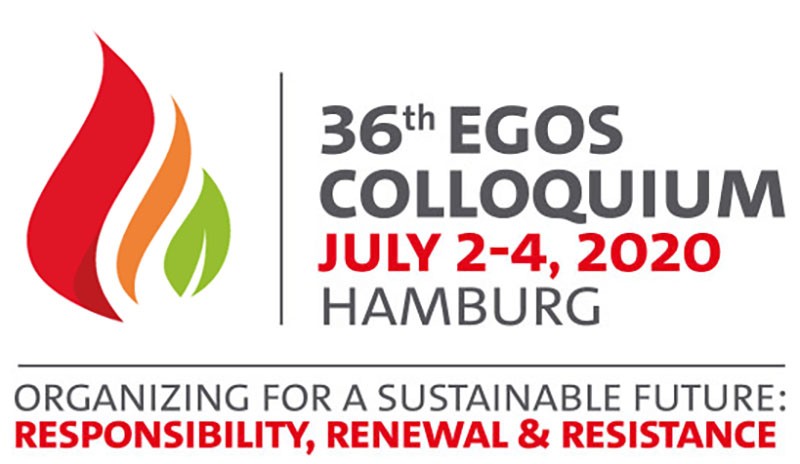Sub-Plenary 1-3
Where is Inequality in Organization Theory?
John M. Amis, University of Edinburgh, United Kingdom
Kamal A. Munir, University of Cambridge, United Kingdom
Panelists:
Johanna Mair, Hertie School of Governance, Germany
Barbara L. Gray, Penn State University, USA
Brooke Harrington, Dartmouth College, USA
Over the last three decades, economic inequality has emerged as one of society’s most pressing challenges. This is problematic
not least because higher levels of economic inequality are associated with higher levels of social and health problems including
higher rates of mortality, mistrust, crime, obesity, mental illnesses, violence, and incarceration rates and weaker democratic
institutions.
But what does all this have to do with organizations? Plenty, as it turns out. While most organizations claim to have instituted
merit-based recruitment, promotion and related work practices, research shows that they continue to be key sites where gender,
race and class-based inequalities are created, sustained and legitimized. And yet, within organization theory and management
literatures, organizations appear as largely neutral entities, focused on attainment of their goals. Gender-, race- and class-based
inequalities remain largely invisible in our narratives.
In this sub-plenary, we will explore issues related to how and why organizations are heavily implicated in the phenomenon
of inequality. We will also examine why such practices can go unchallenged.
John M. Amis is Professor of Strategic Management and Organisation at the University of Edinburgh Business School, United Kingdom. His
research interests center on issues of organizational, institutional and social change. John has had over 70 book chapters
and articles published in journals that include Academy of Management Annals, Academy of Management Journal, Academy of Management Review, American Journal of Public Health,
Human Relations, Organization Science, Organization Studies, and Organizational Research Methods. His most recent book, “Race, Economics and the Politics of Educational Change” (2018, co-edited with Paul Wright), provides
a multi-disciplinary investigation of the recent Memphis-Shelby County school district merger, the largest in US history.
John also co-edited a recent Special Issue of Organization Studies titled “Inequality, Institutions and Organizations” (with Tom Lawrence, Kamal Munir, Paul Hirsch & Anita McGahan).
Kamal A. Munir is Reader in Strategy & Policy at the Cambridge Judge Business School, United Kingdom, and a Fellow of Homerton College.
He also serves as the Race Equality Champion for the University of Cambridge. His research focuses on institutional change
and stability, with an emphasis on markets and social inequality. He has published several articles in leading organizational
journals, including the Academy of Management Journal, Organization Studies, and Cambridge Journal of Economics and Research Policy. Kamal is the co-founder of OTREG, an international discussion forum for organizational theorists.
Johanna Mair is Professor of Organization, Strategy and Leadership at the Hertie School of Governance in Berlin, Germany. Her research
focuses on the nexus of organizations, institutions and societal challenges. Her book “Innovation and Scaling – How effective
Social Entrepreneurs Create Impact” (Stanford University Press, 2017 co-authored with Christian Seelos) won the 2017 Terry
McAdam Award at ANOVA and the 2018 ONE Outstanding Book Award at the Academy of Management Meeting. Johanna’s research has
appeared in the Academy of Management Journal, Organization Studies, Academy of Management Discoveries, Academy of Management Perspectives,
Journal of Business Ethics, and other journals.
Barbara L. Gray is Professor and Faculty Fellow, Emerita in the Smeal College of Business at Penn State University, USA. She studies conflict,
collaboration, class dynamics, framing, power and institutional processes within and between organizations. Barbara has studied
inequality with respect to race and class dynamics as well as the effects of power disparities on the processes and outcomes
of multi-stakeholder partnerships. She also serves as a victim’s advocate for organizations where sexual misconduct has occurred.
Brooke Harrington is Professor of Sociology at Dartmouth College, USA. Her research examines the social underpinnings of finance. Her book
on global wealth management, offshore finance and taxation – titled “Capital without Borders: Wealth Managers and the One
Percent” – was published in September 2016 by Harvard University Press; it won the 2018 “Outstanding Book” award from the
American Sociological Association and has been translated into four languages. Brooke has consulted for major global firms,
such as amazon.com and Bank of America, as well as international organizations and governmental bodies, including tax agencies
in Europe and Asia.


